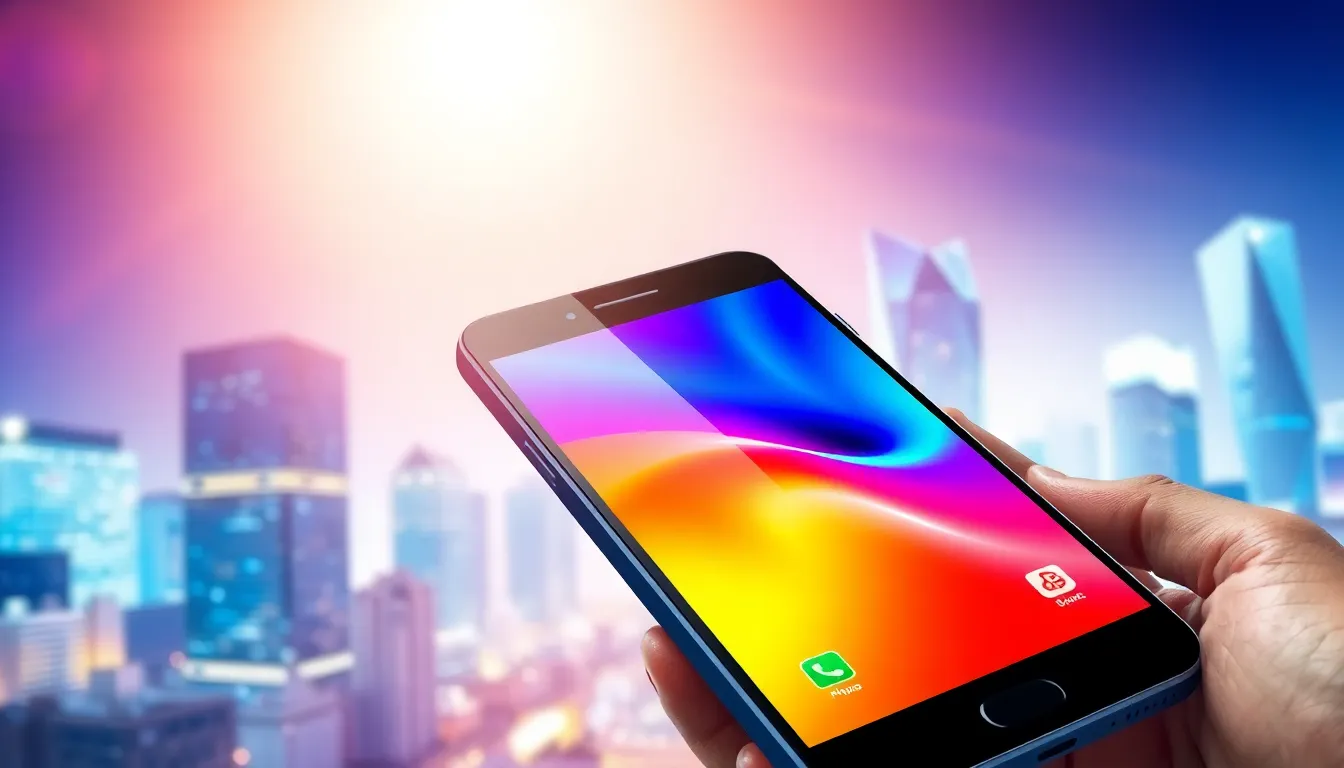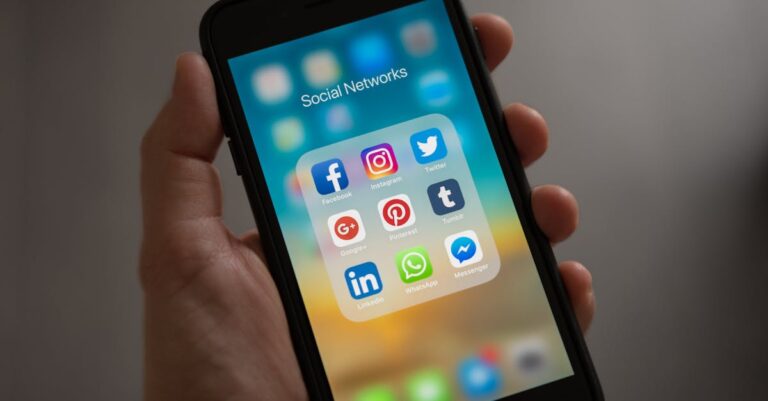In a world where smartphones have become an extension of our very selves, mobile technologies are shaping the way we live, work, and play. From the moment you wake up to the blaring alarm on your device to the last scroll through social media before bed, these gadgets are more than just tools; they’re lifelines. Who knew that a tiny rectangle could hold the power to connect us with friends across the globe or help us order pizza with just a tap?
But it’s not all fun and games. As mobile technologies evolve at lightning speed, they bring both incredible opportunities and unique challenges. Whether it’s navigating the latest app trends or grappling with privacy concerns, staying informed is crucial. Dive into the fascinating world of mobile technologies, where innovation meets everyday life, and discover how these advancements are transforming our digital landscape—one swipe at a time.
Table of Contents
ToggleOverview of Mobile Technologies
Mobile technologies encompass a range of devices, applications, and systems designed for portability and connectivity. Smartphones lead this category, providing users with immediate access to communication tools, internet services, and numerous applications. Tablets also play a crucial role, offering larger screens for enhanced productivity and entertainment experiences.
Laptops, while traditionally stationary, have adapted to mobile environments with lightweight designs and improved battery life, becoming more versatile. Portable gaming consoles illustrate another aspect of mobile technology, combining entertainment and advanced graphics in a compact form.
Mobile applications form the backbone of the mobile experience, enabling functionalities like messaging, social media, e-commerce, and gaming. In 2023, there are over 3 million apps available on platforms such as Apple’s App Store and Google Play. These allow users to tailor their devices to specific needs and interests.
Wireless communication technologies are essential to the functionality of mobile devices. 4G and 5G networks offer fast data transmission and reduced latency, enhancing the user experience for streaming services and real-time applications. Internet of Things (IoT) devices further integrate into this landscape, connecting everyday objects to the internet for smarter home and city solutions.
These advancements present both opportunities and challenges. Increase in user connectivity comes with heightened security concerns, prompting discussions around privacy and data protection. Addressing these challenges is critical for future innovations and user trust.
Overall, the landscape of mobile technologies continually evolves, shaping how people communicate, access information, and interact with the world around them.
Types of Mobile Technologies

Mobile technologies encompass various systems that enhance connectivity and user experience. Key components include cellular networks and mobile operating systems.
Cellular Networks
Cellular networks form the backbone of mobile communication. These systems enable devices to connect wirelessly, transmitting data efficiently. Various generations of networks exist, with 4G and 5G currently leading the way. 4G provides fast download speeds up to 100 Mbps, facilitating smooth streaming and browsing. In contrast, 5G offers speeds exceeding 1 Gbps, significantly improving mobile experiences. Each network generation introduces enhancements in latency and capacity, supporting more simultaneous connections. Users benefit from improved call quality and seamless access to mobile applications through these networks.
Mobile Operating Systems
Mobile operating systems manage device functionality and user interfaces. Dominant OS options include Android and iOS, which together account for over 99% of the market share. Android, an open-source platform, provides extensive customization options and access to a wide range of applications. iOS, known for its user-friendly design, offers a curated app ecosystem that emphasizes security. Each operating system receives regular updates that improve performance and introduce new features. Users experience enhanced device interactions through optimized operating systems, ensuring that mobile technologies advance alongside user needs.
Impact of Mobile Technologies
Mobile technologies significantly transform various aspects of life. Their influences extend from social interactions to economic advancements.
Social Connectivity
Mobile technologies enhance social connectivity by enabling instantaneous communication. Social media platforms thrive on smartphones, allowing users to share experiences and engage with others globally. People connect through messaging apps, which facilitate real-time conversations regardless of location. With over 3 million mobile applications available, numerous tools enable virtual interactions and community building. Video calling enables face-to-face communication, reducing distances in personal and professional relationships. Additionally, mobile technologies support accessibility for individuals with disabilities, creating inclusive opportunities for social engagement.
Economic Growth
Mobile technologies drive economic growth in multiple sectors. Businesses leverage mobile platforms to reach consumers, expanding market access and increasing sales. In 2023, global mobile commerce is projected to surpass $3 trillion, reflecting shifting shopping behaviors. Entrepreneurs utilize mobile apps for service delivery, enhancing consumer convenience. Job creation also rises, with the mobile industry employing millions worldwide in development, design, and marketing roles. Moreover, mobile technologies promote financial inclusion through mobile banking, offering secure transactions and access to financial services for underserved populations.
Future Trends in Mobile Technologies
Mobile technologies continue to advance rapidly, shaping the way people interact with devices and each other. Two key trends dominate the future landscape: 5G networks and the Internet of Things (IoT).
5G and Beyond
5G networks promise transformative mobile experiences with data speeds exceeding 1 Gbps. Ultra-reliable low latency significantly enhances streaming and gaming, making real-time interactivity seamless. This network supports dense device connections, effectively catering to smart cities and digital health applications. With its capacity, 5G fosters innovations in autonomous vehicles and augmented reality experiences, amplifying mobile engagement. Mobile service providers focus on expanding this network, aiming for widespread coverage and increased adoption.
Internet of Things (IoT)
IoT connects everyday objects to the internet, creating smart environments that enhance daily life. Over 75 billion devices connected globally generate vast amounts of data, enabling smarter homes and cities. Wearable technology monitors health metrics, contributing to personalized wellness plans. Smart appliances streamline household tasks, while connected vehicles improve safety and navigation experiences. Businesses leverage IoT for operational efficiency and data-driven decision-making, driving innovation across various sectors. The integration of IoT solutions continues to expand, offering valuable insights and enhancing user interactions.
Mobile technologies are reshaping daily life in profound ways. They not only enhance communication and convenience but also introduce new challenges that require careful navigation. As these technologies evolve they promise to unlock even greater potential for innovation and connectivity.
The ongoing advancements in mobile applications and network capabilities are set to further transform user experiences. The integration of IoT and 5G will create smarter environments and seamless interactions.
As individuals and businesses adapt to these changes the impact of mobile technologies will continue to grow, driving economic progress and enhancing social connectivity. Embracing this evolution is essential for staying relevant in an increasingly mobile world.



